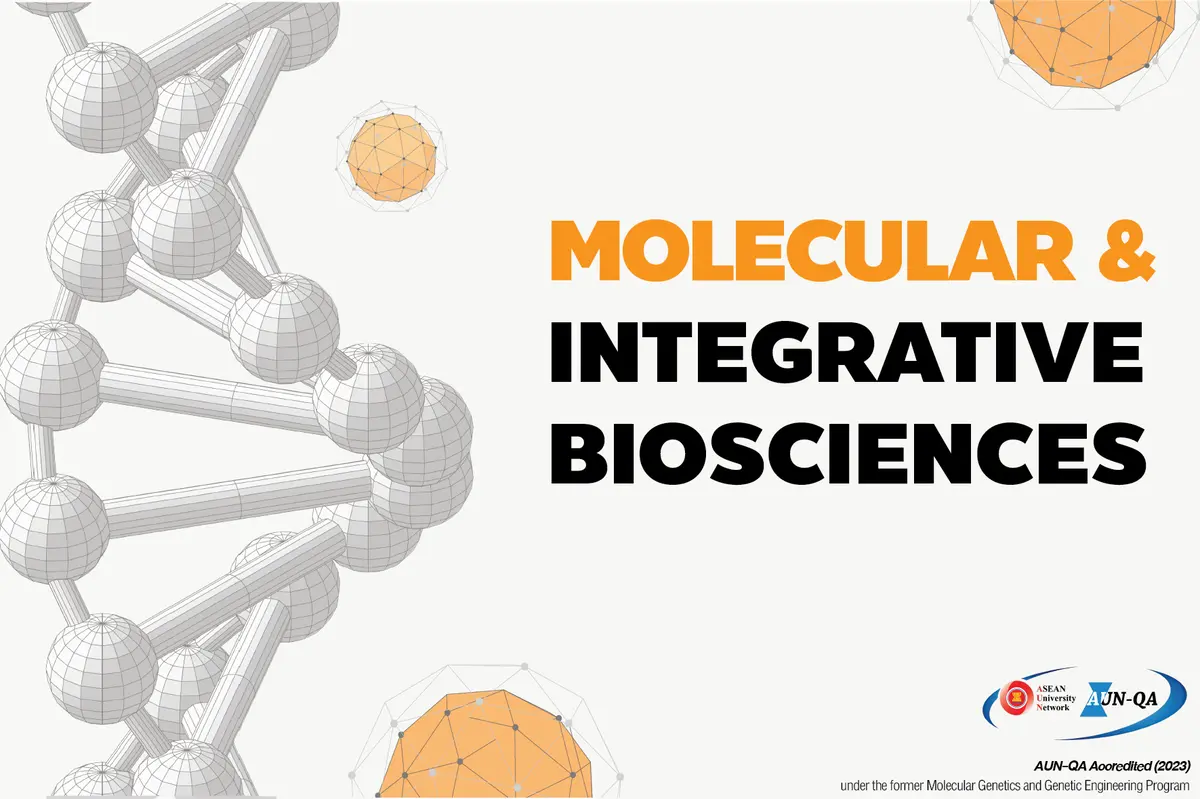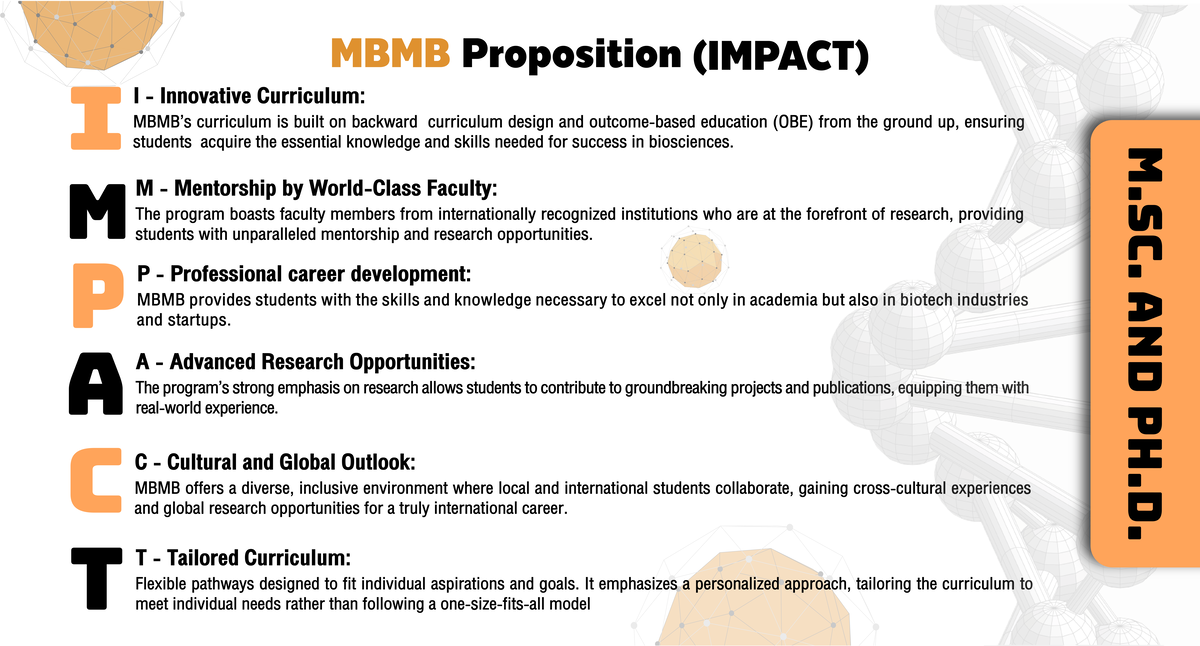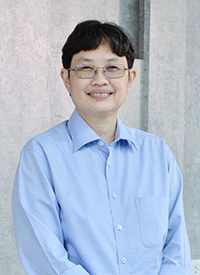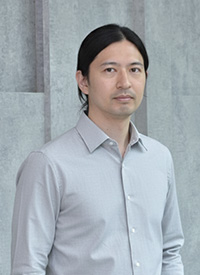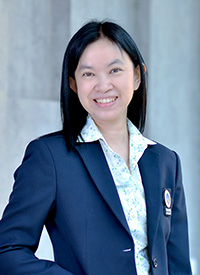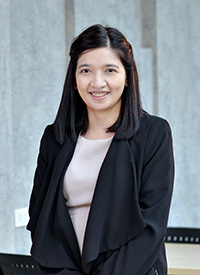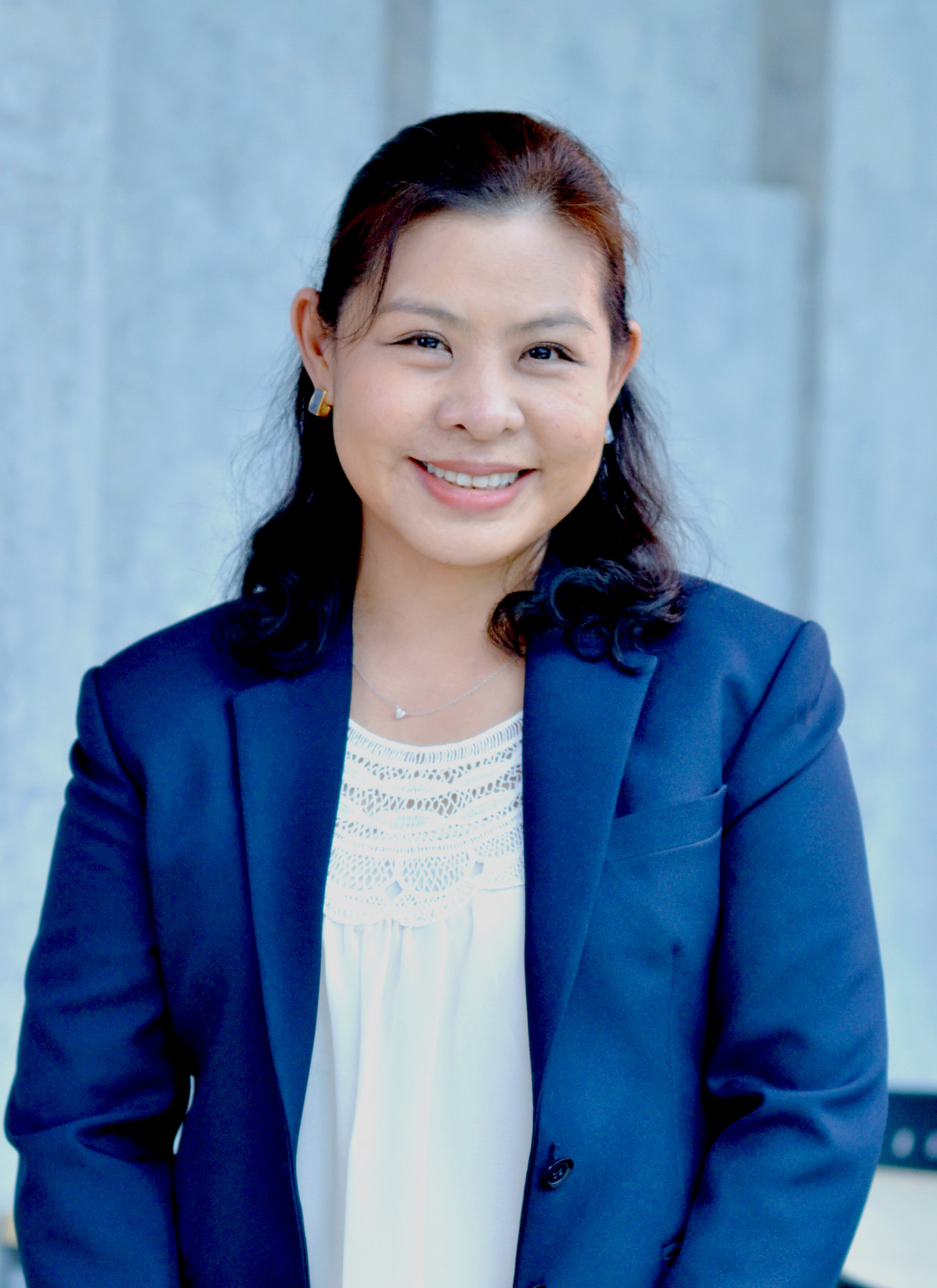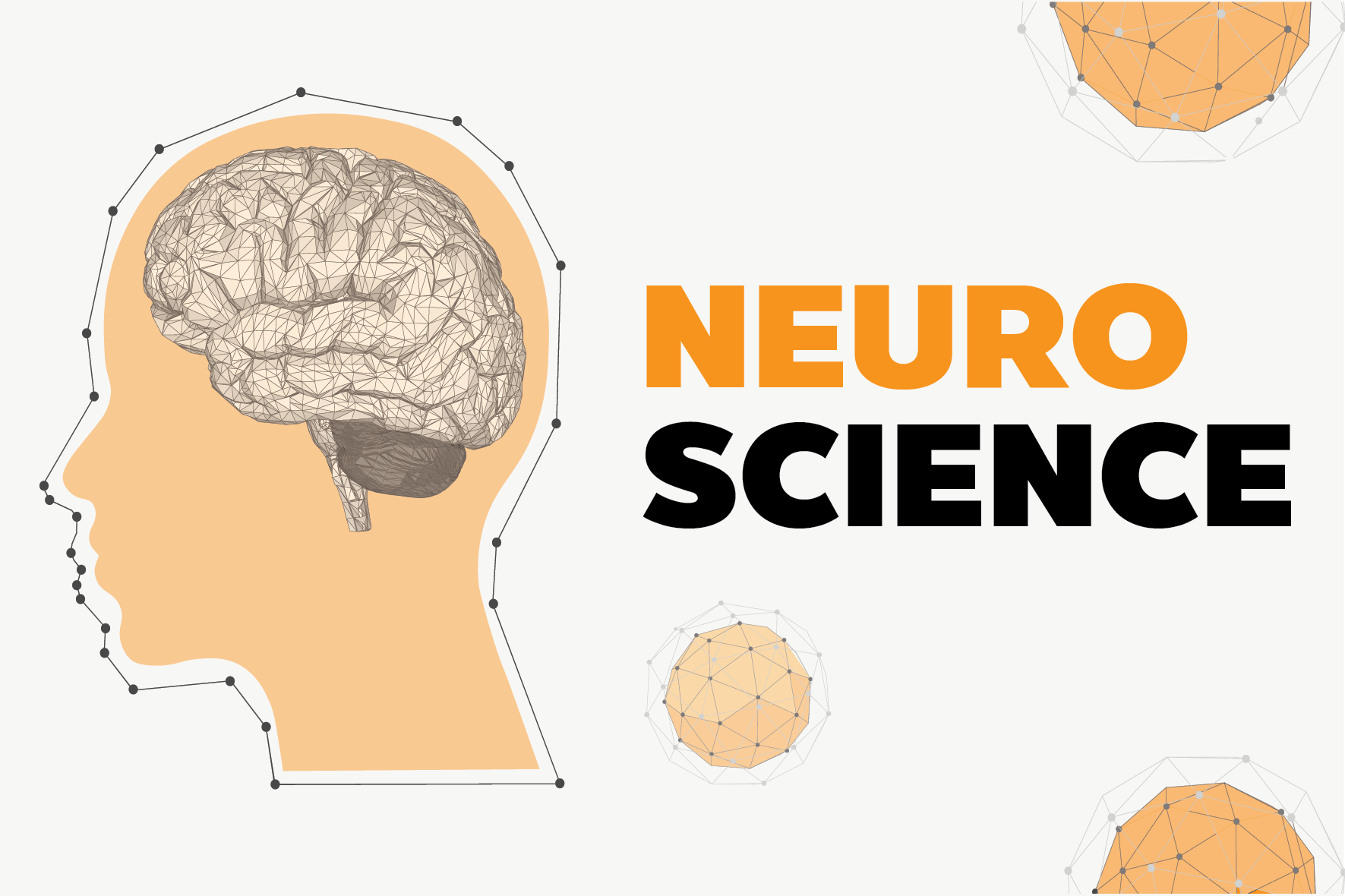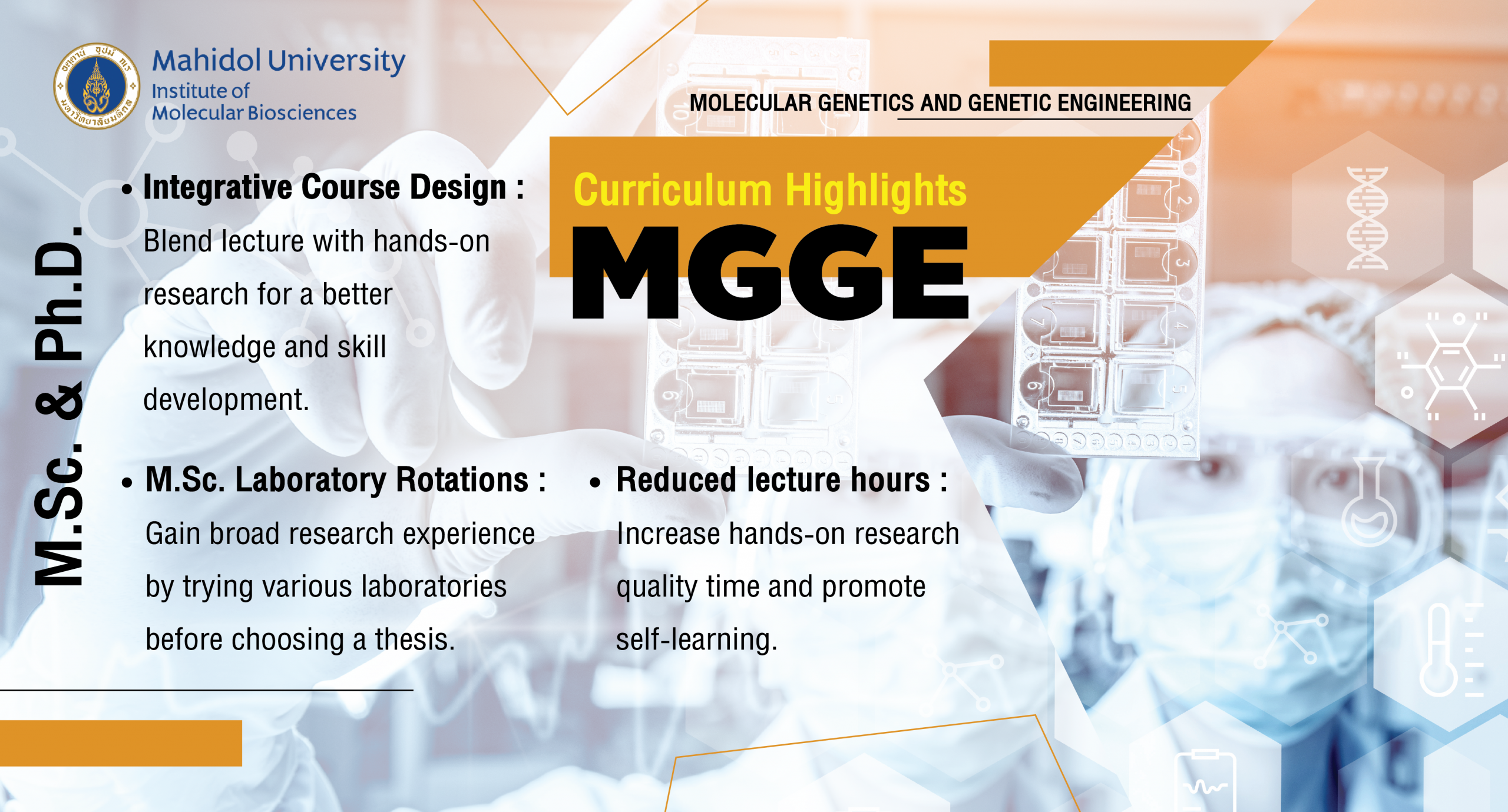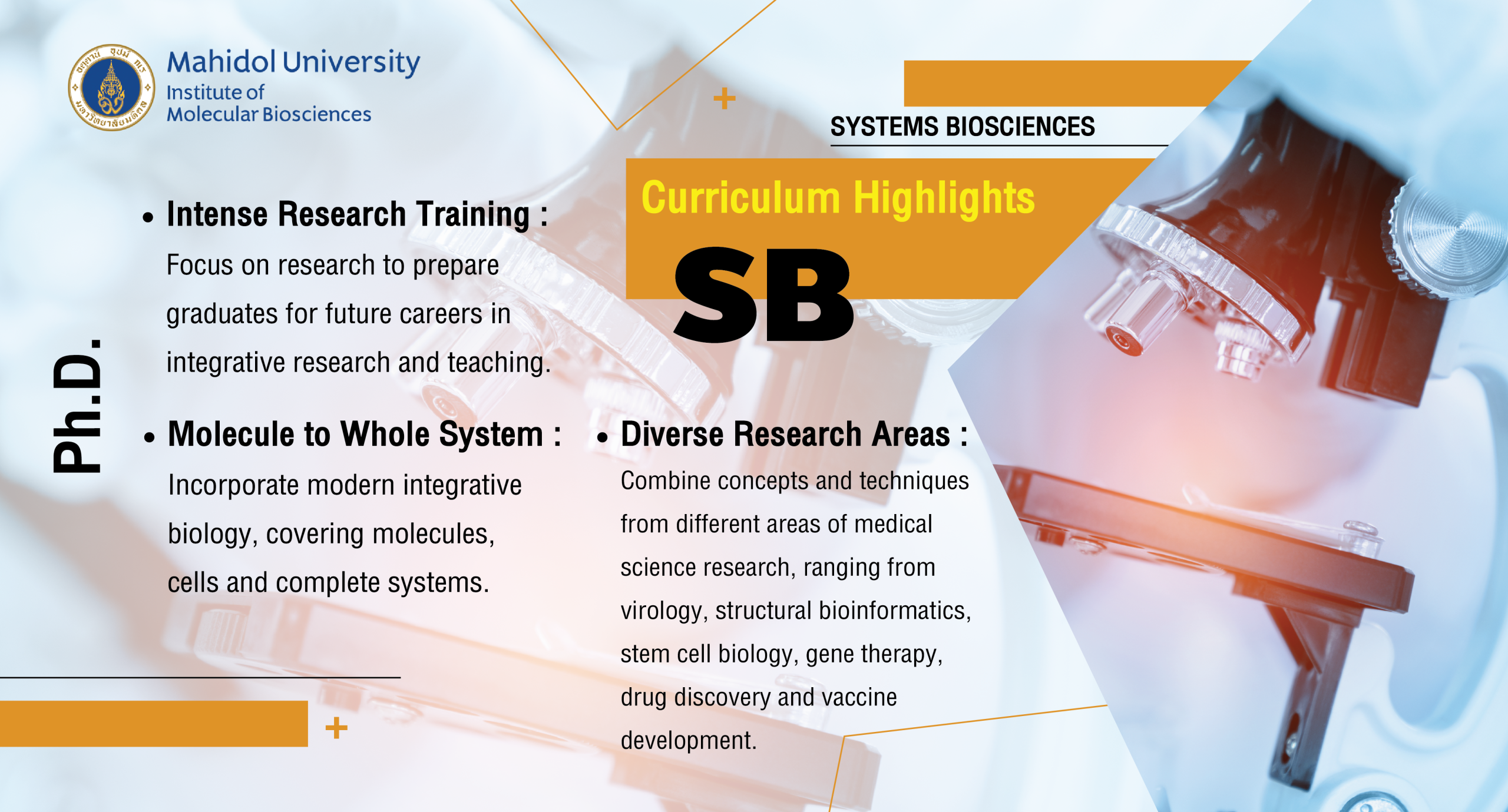Program–Level Learning Outcomes: PLOs
When complete the learning of the program, students will be able to:
(1) Conceptualize, integrate, and apply fundamental knowledge of theory and practice in Molecular and Integrative Biosciences.
(2) Exercise cognitive and practical skills essential for conducting research in the field of Molecular and Integrative Biosciences.
(3) Adhere to ethical standards and integrity in both personal and professional practices.
(4) Possess academic and research communication, leadership and adaptability.
Program–Level Learning Outcomes: PLOs
When complete the learning of the program, students will be able to:
(1) Evaluate and integrate novel ideas to synthesize complex knowledge systems within the field of Molecular and Integrative Biosciences.
(2) Create and internationally publish high-quality research in Molecular and Integrative Biosciences.
(3) Adhere to and advise best practices for ethics and integrity in both personal and professional practices.
(4) Possess academic and research communication, leadership and adaptability in diverse, interdisciplinary, and international environments.
Course List
- MBMB 500 Graduate School Essentials for M.Sc. Students in Molecular and Integrative Biosciences
- MBMB 600 Graduate School Essentials for Ph.D. Students in Molecular and Integrative Biosciences
- MBMB 501 Molecular Biology
- MBMB 502 Cell Biology
- MBMB 503 Integrative Biosciences
- MBMB 504 M.Sc. Research Design in Molecular and Integrative Biosciences
- MBMB 604 Ph.D. Research Design in Molecular and Integrative Biosciences
- MBMB 505 M.Sc. Seminar in Molecular and Integrative Biosciences
- MBMB 605 Ph.D. Seminar in Molecular and Integrative Biosciences
- MBMB 506 M.Sc. Research Forum
- MBMB 606 Ph.D. Research Forum
- MBMB 607 Ph.D. Research Communication to the General Public
- MBMB 521 Current Topics in Molecular and Integrative Biosciences
- MBMB 621 Advanced Current Topics in Molecular and Integrative Biosciences
- MBMB 522 Apprentice Teaching (M.Sc.)
- MBMB 622 Apprentice Teaching (Ph.D.)
- MBMB 523 Career Development for Molecular Biosciences Students (M.Sc.)
- MBMB 623 Career Development for Molecular Biosciences Students (Ph.D.)
- MBMB 624 Adeno-Associated Viral Vectors
- MBMB 625 Antibacterial and Bacteriophage
- MBMB 626 Bacteriology
- MBMB 627 Bio-Based Products for Sustainability
- MBMB 628 Biosensor Technology: Fundamentals and Applications
- MBMB 629 Cancer Biology and Precision Medicine
- MBMB 630 Cellular and Molecular Imaging
- MBMB 631 CRISPR/Cas9 Genome Editing
- MBMB 632 DNA Barcoding
- MBMB 633 DNA Sequencing for Bacterial Pathogen Study
- MBMB 634 Drug Discovery and Development
- MBMB 635 Environmental DNA (eDNA): Technique for Biodiversity Conservation
- MBMB 636 Experimental Animals for Biosciences Research
- MBMB 637 Fluorescent Protein Technology and Yeast Genome Engineering
- MBMB 638 Fundamental Neuroscience
- MBMB 639 Induced Pluripotent Stem Cell (iPSC) Generation and Characterization
- MBMB 640 Introduction to Machine Learning
- MBMB 641 Lentiviral Vectors
- MBMB 642 mRNA Vaccine Development
- MBMB 643 Omics in Gene Regulation Studies
- MBMB 644 PCR-Based Gene Mutagenization for Protein Engineering
- MBMB 645 Prime Editing Technique
- MBMB 646 Proteomics Technologies and Applications
- MBMB 647 Research to Business
- MBMB 648 Starch Modification for Functional Food Innovation
- MBMB 649 Structural Bioinformatics and Drug Design
- MBMB 650 Technological Innovative Learning
- MBMB 651 Thalassemia: from Bench to Bedside
- MBMB 652 Vaccine Design
- MBMB 653 Vaccine Technology and Development
- MBMB 654 Virological Techniques
- MBMB 655 Virus and Cell Interaction
- MBMB 656 Working with Pathogens in Secure Laboratory (BSL2/BSL3)
Further information
Please visit https://mbmb4all.wordpress.com
M.Sc. (Molecular and Integrative Biosciences)
Ph.D. (Molecular and Integrative Biosciences)
Admission RequirementsDetail information about admission and other related criteria please visit https://graduate.mahidol.ac.th
![]()

